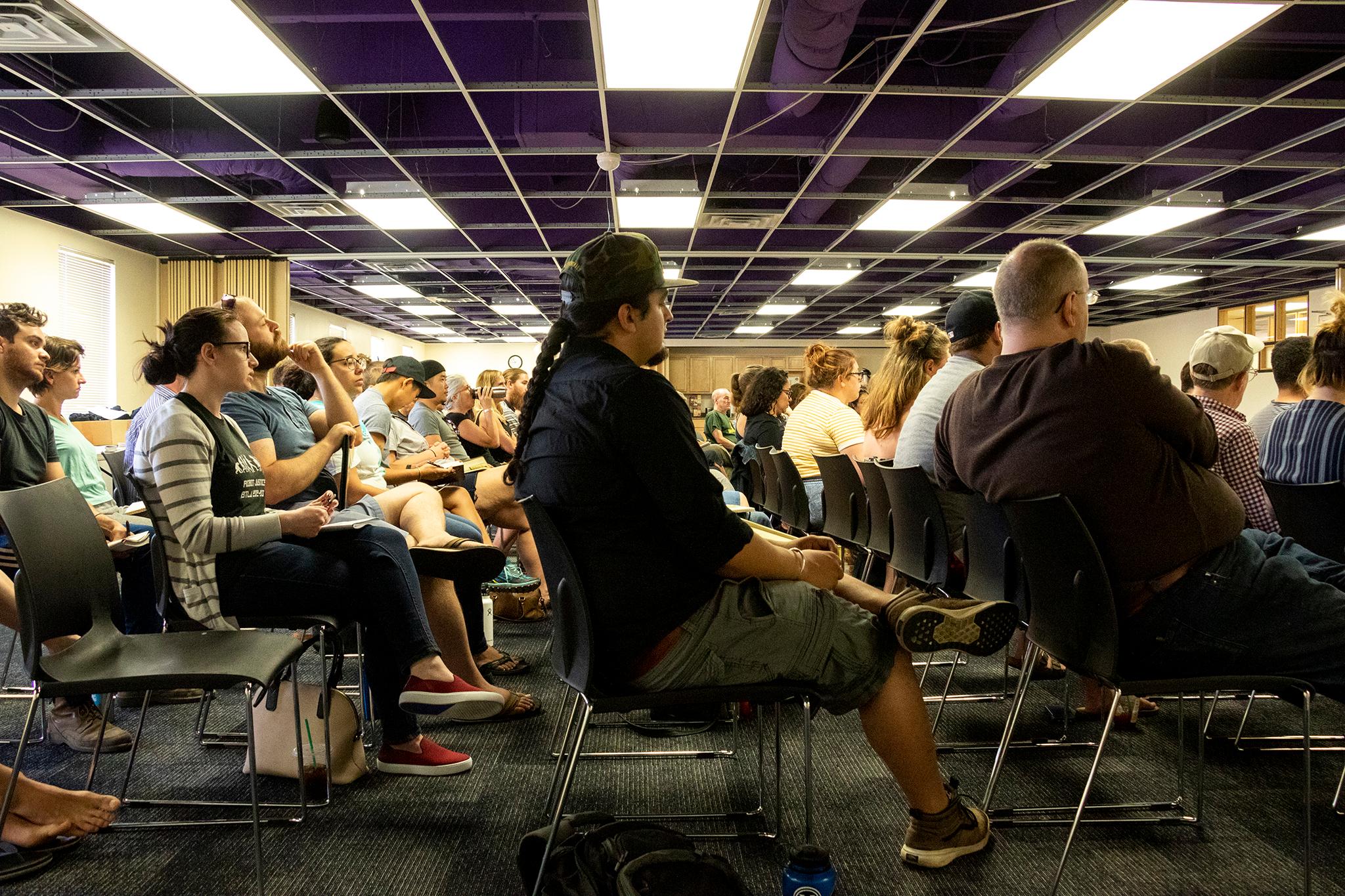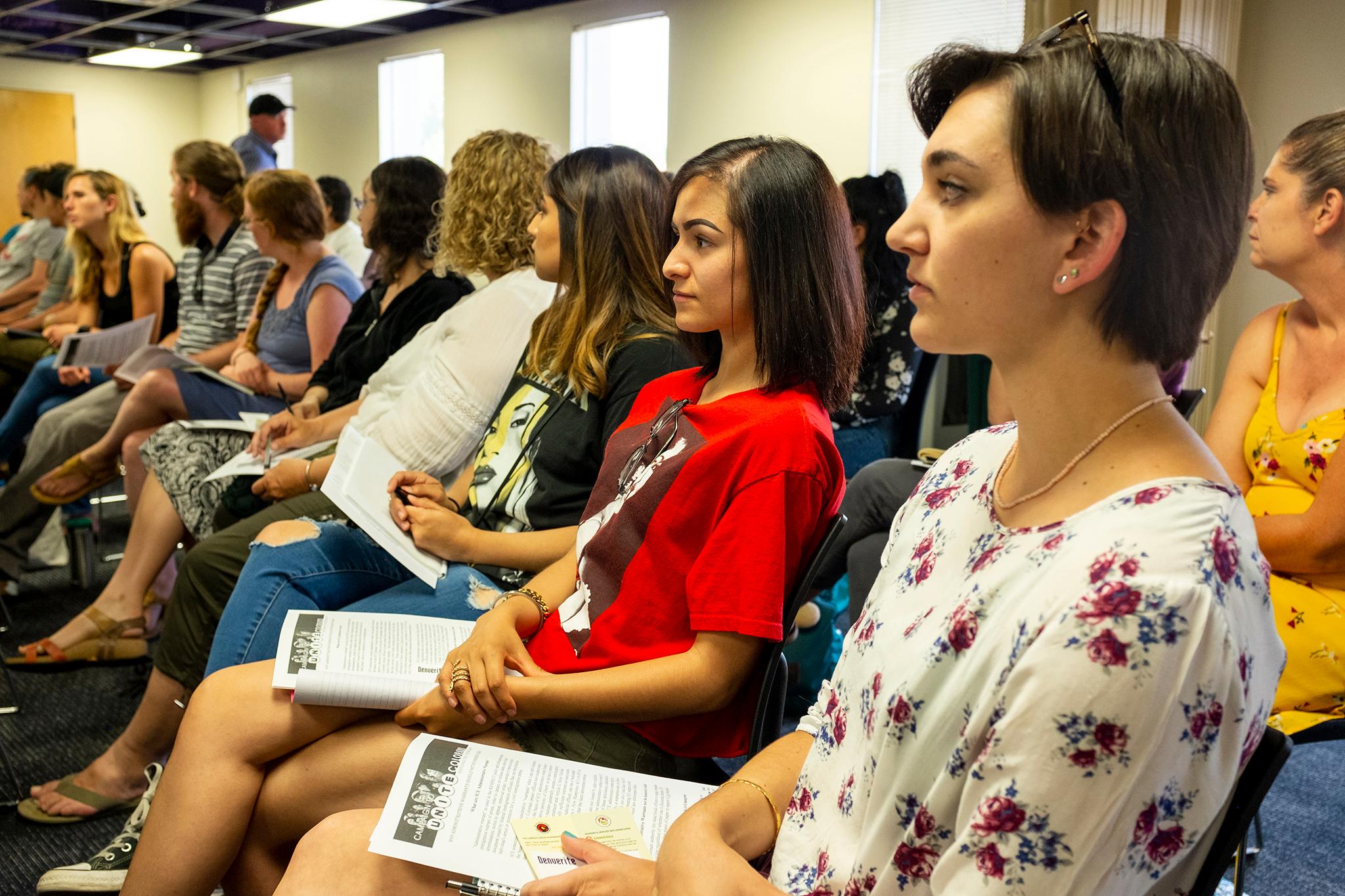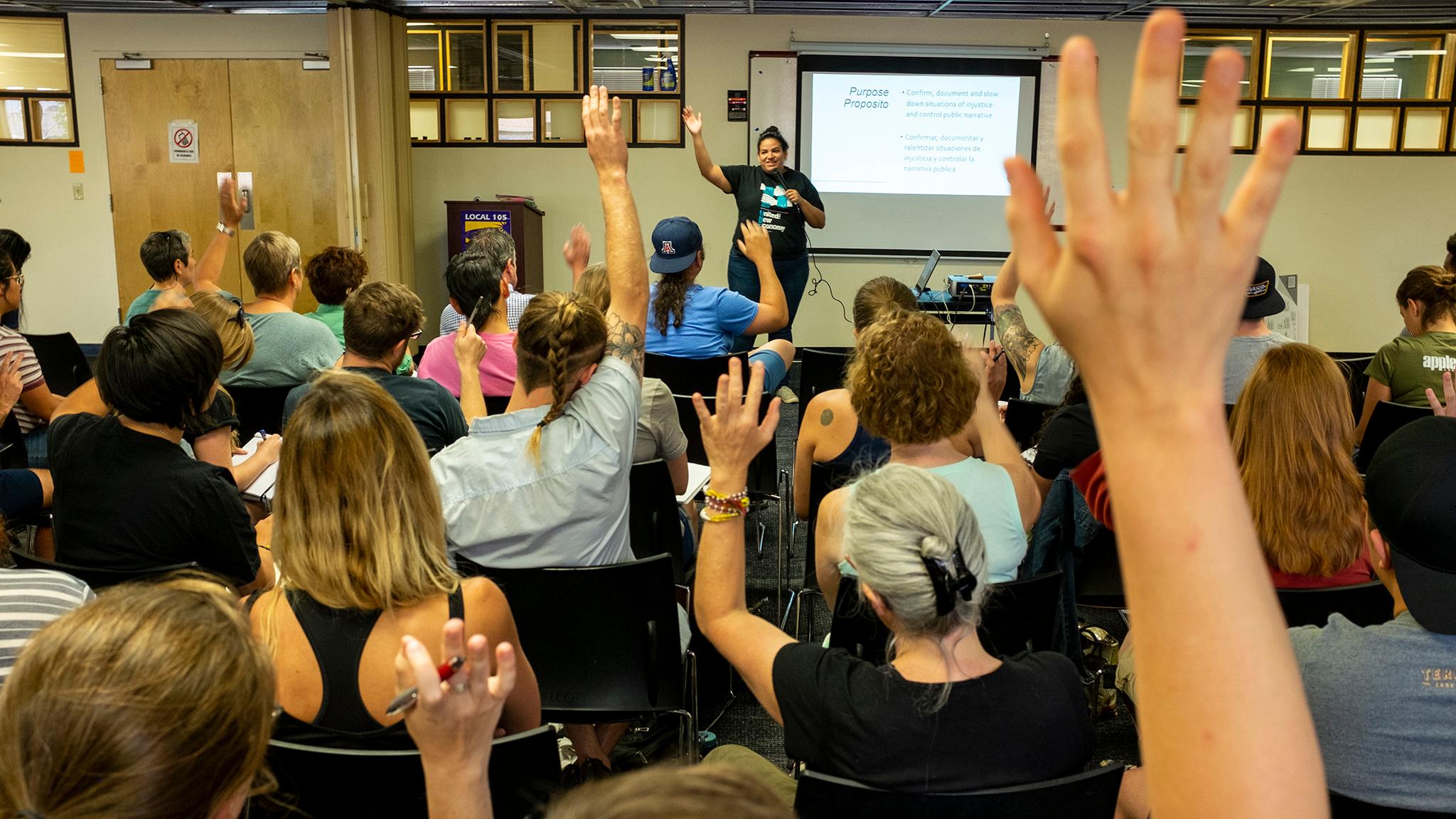A hotline service to report suspected ICE activity has had a lot more calls than normal lately.
Josh Stallings, a new coordinator for the Colorado Immigrant Rights Coalition and volunteer with the hotline, has been fielding reports on 12-hour Monday shifts since the Colorado Rapid Response Network was formed two years ago. Things were fairly quiet until last week, when it became known that federal immigration authorities were considering nationwide deportation operations.
"I'd gotten only a handful of calls during the two years," he said, "And then, Monday this week, I had over 30 calls."
Many of these were false alarms. As residents without legal status deal with more intense fear, some have begun calling in to report ICE raids when they've just witnessed regular police activity. An accident on the highway, which caused a traffic jam and a police response, was one example Rapid Response Network operator Jordan Garcia said triggered a report in recent weeks.
But the possibility of raids and President Trump's threatening tweets have also caused a wave of activism to combat that fear.
On Saturday, the Rapid Response Network held its largest volunteer training ever. People signed up in droves when registration opened last Tuesday. It hit capacity and was closed after 48 hours, a first for the program. About 100 people attended to learn how to respond as legal observers or dispatchers as more calls come in.
Volunteers might stay on the phone with people who have encountered immigration agents and coach them to avoid being searched or detained. They might travel to the location of suspected activity to confirm whether or not it's actually happening.
Stallings said it's an effort to quell unnecessary panic: "It's so easy for rumors to spread and for people to have fear about things that aren't even true."
This week, he heard reports that some people were too afraid to leave their homes for school or work.
"This is scary. This is life and death for some people," he said. "We don't want people to be afraid of things they don't need to be afraid of."
But Celesté Martinez, an organizer of the event who works with United for a New Economy, said a one-dimensional narrative of fear misses the full story.
"People are really clear that there are things we can do about it and take action together instead of feeling stuck in that powerlessness," she said. "Part of the reason we created the Rapid Response Network is that we heard from allies in the community, especially white-identifying folks, about how they wanted to take action but didn't know how."
A broader range of people have become interested in helping, she added.


Blaise DeFranco was one person in the room who was looking for somewhere to channel her displeasure with the state of things. She's a citizen and her family is not directly impacted by a threat of deportation, but she's been following the news and wanted a way to "be involved personally" and lend a hand.
Sitting next to her was Karina Lozano, who is much closer to the issue. Her mother was deported when she was 13. Though her mom made it back into the U.S., Lozano said the experience left her with lasting trauma, PTSD and depression for which she now sees a counselor.
The training, she said, was "empowering." It armed her with tools to bring home to her family, even as they make contingency plans in case ICE comes knocking at their door.
"It's stressful for me, but I'm glad that I'm able to come to these kinds of events," she said.
Rick Bailey, a local business attorney who has worked to organize immigration-related protests, led the room as they recited "magic words" to use if they find themselves dealing with ICE.
"Did I do anything wrong? Am I free to leave?"
"I want to remain silent."
"I do not consent to a search. I would like to see an arrest or a search warrant," the room said in booming unison.
"These are called magic words because they are things to say loudly so witnesses can hear," Bailey said.
"It's really inspiring to see that folks aren't getting caught up in the distress of the moment and are willing to take action," Martinez said. "These folks, at the end of today, will have hard skills on how to engage in our network, even if we got a call as soon as the training is done."
Beyond in-the-moment response, the network is also collecting data on each confirmed instance of ICE interaction.
Martinez said this shapes how they try to hold politicians accountable. She attributed a 2017 measure passed by Denver City Council, which limited how city employees can communicate with ICE, to data collected by the newly born network on courthouse apprehensions.
So far, the Network has trained 350 volunteers in Colorado and more in Wyoming.













